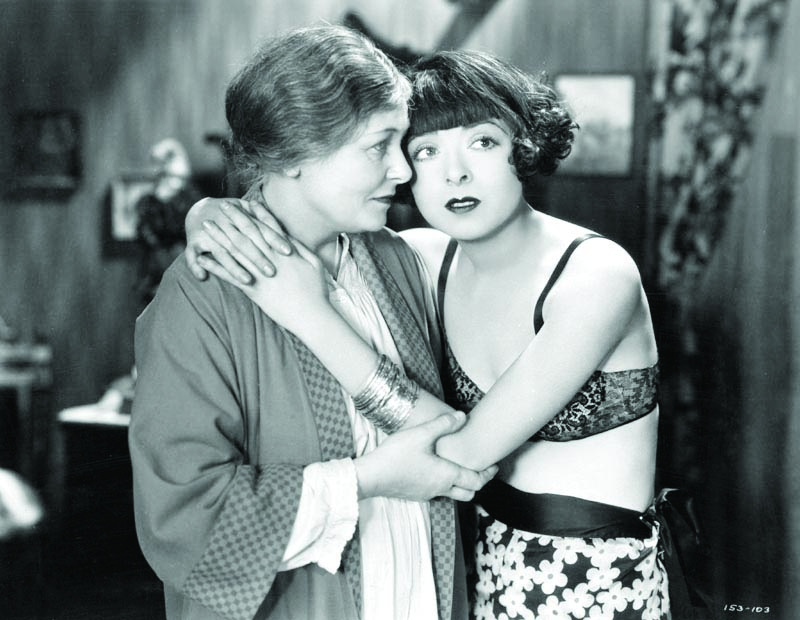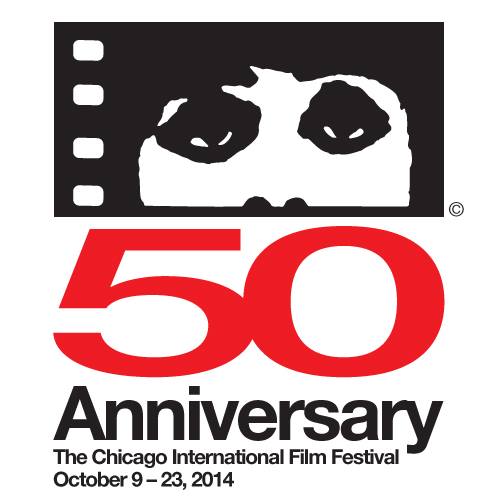Chicago International Film Festival: Final Thoughts and Films
By Joel Wicklund in Arts & Entertainment on Oct 23, 2014 3:55PM

Colleen Moore in "Why Be Good?" (Photo courtesy of Chicago International Film Festival)
As the curtain comes down on the 50th Chicago International Film Festival, it's time for the inevitable yearly complaints about how it pales next to the other major American film festivals.
I'm not going down that old road.
For one thing, unless you attend all those festivals and see more than half of the movies showing at each, any kind of authoritative statement about overall quality seems questionable. Also, warts and all, CIFF remains an amazing chance to see dozens of movies that might never play theatrically here otherwise, and many that will never even make it stateside on DVD or other at-home viewing sources.
Which is not to say CIFF couldn't use some improvements. Here are my top four suggestions:
1) Look beyond "prestige" films. No, CIFF should not become a genre-based festival, and it's vital that quality is always prioritized over commercial appeal. That said, anyone serious about movies knows there is artistry and personal expression in the best genre fare. Yes, CIFF has its After Dark category for horror and "extreme" films (meaning violent, I guess?). But many film-producing nations have their own action films, suspense thrillers, crime procedurals, sci-fi adventures, musicals and more. Great, human stories are not portrayed exclusively in realistic dramas or low-key comedies, but CIFF has long seemed overly concerned with keeping a barrier between art and entertainment. The best movies often straddle both territories.
2) More revivals, please! Seeing Alfred Hitchcock's underrated Jamaica Inn and the rediscovered silent comedy Why Be Good? on the big screen with appreciative audiences was an absolute treat. This year boasted more revivals than usual to mark the fest hitting 50, but an ongoing selection of 10-12 vintage films would be an incredible gift to local movie buffs. Yes, Chicago has some damn good regular revival programming, but there is no shortage of worthy movies that never or rarely get shown theatrically, and CIFF has a path to international film archives that even some of the best revival programmers can't access.
3) Liven up the Q&As. It's admirable that the festival has so many filmmakers in attendance, but often the after-film discussions are a pretty awkward affair. Lining up more film scholars, critics, or other filmmakers to lead the discussions might help, but credentials are less important than preparation and enthusiasm. As a rambling, strained exchange between CIFF founder Michael Kutza and historian David Robinson before Why Be Good? proved, even knowledgeable presenters can drop the ball.
4) Improve the ancillary events. The CIFF program played up a festival gallery exhibit at the Expo 72 space across from the Chicago Cultural Center. Promising an "expansive display of posters, images and videos from its venerable five-decade history," it was actually a seemingly perfunctory assortment of photo blow-ups and an awkwardly designed video display that showed badly in the bright light (and replayed the same footage over and over to serve a contest). With all the archival material available, this should have been far more impressive. Costs are naturally a consideration for ancillary events, but with the many sponsorships and partner venues (Columbia College falls under both categories, but has been used sparingly), there's a lot of room for growth here.

Image courtesy of Chicago International Film Festival.
Camera: If any movie proves my point regarding artistic expression in genre films, it's this noir-tinged science fiction yarn from Hong Kong and Singapore. Camera is so relevant to our age of a camera in every hand and Google Glass-type technology, that it feels less like science fiction than looming science fact. This stylish, brooding picture follows an obsessive surveillance expert with a camera implanted in his eye. A memorable narrative feature debut from director and co-writer James Leong.
Jamaica Inn: This lesser-known Hitchcock film has such a middling reputation that I never got around to seeing it until CIFF's showing of a restored, 4K DCP version. An old lesson learned again: there is very little forgettable Hitchcock. Though Charles Laughton hams it up shamelessly even by his standards, this is a truly exciting film, and surprisingly violent for its era. A tale of cutthroat criminals working secretly for a wealthy man of power, it features plenty of top-notch Hitch tricks and Maureen O'Hara at her loveliest.
Gente de Bien: The emotional impact of the income gap is portrayed with deep humanity in this moving Colombian drama. A young boy gets a taste of the upper class when his working poor father takes him along to work at his employer's holiday getaway. The cast is exceptionally good, including young Brayan Santamaria, showing none of the annoying mannerisms child actors often display.
Why Be Good?: With many of her films lost to the ravages of time, Colleen Moore is probably better known today for her Fairy Castle dollhouse (a fixture at the Museum of Science and Industry for decades) than her movies. But she was a major star of the silent era and later in life gave a young Mr. Kutza a helping hand in founding CIFF. A complete print of this bubbly romantic comedy was rediscovered in the late '90s and just recently restored with its original Vitaphone soundtrack of music and effects. Seeing how well this 85-year-old movie played to a modern audience was a reminder that well-crafted entertainment never gets old.
The Alley Cat: This Chicago-made indie loses its way when melodrama takes over from the opening scenes depicting a novelty bike messenger race, populated with colorful characters. But the movie still deserves a mention for Marie Ullrich’s assured direction, its distinct local flavor, and some exceptional cinematography from Dylan Verrechia. You can't help but wish the brief 68-minute running time had kept the race and its denizens front and center, but there is a lot of promise here for good things ahead from the talent involved.